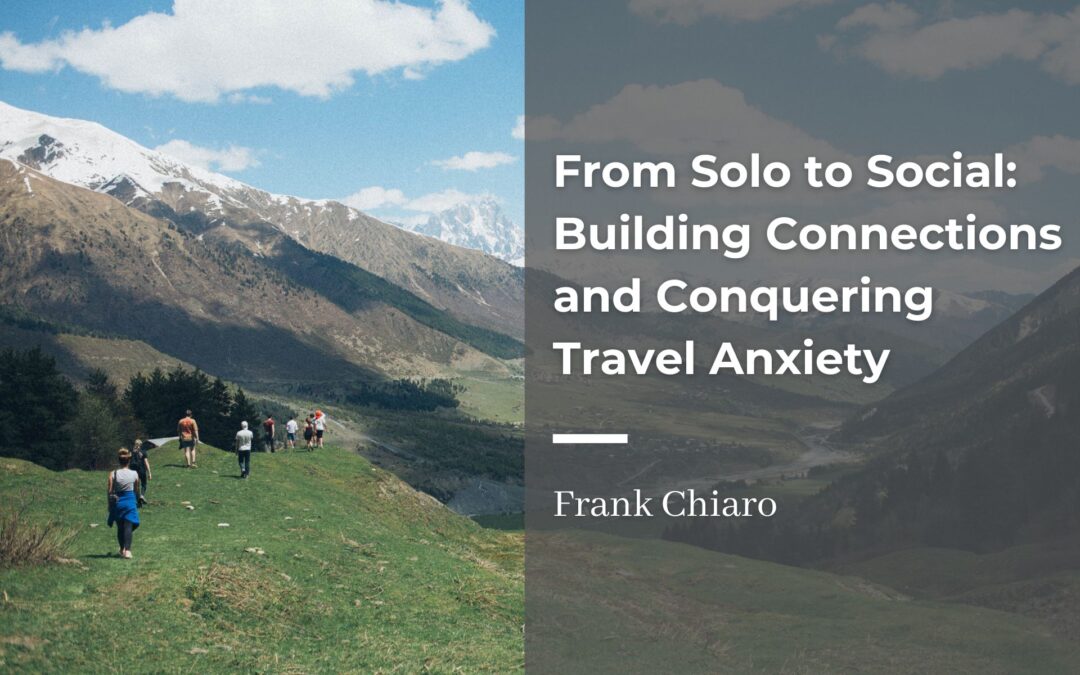Traveling can be an incredibly enriching experience, offering us the chance to explore new places, cultures, and make lasting memories. However, for many, the thought of embarking on a journey can also trigger feelings of discomfort and unease, commonly known as “travel anxiety.” Although not a medical condition, travel anxiety is a widespread phenomenon, especially in today’s world with various challenges like the ongoing pandemic.
Understanding Travel Anxiety:
Travel anxiety is just one form of anxiety that can arise in response to the uncertainty and unfamiliarity associated with traveling. It’s essential to recognize that anxiety itself is a normal emotion that serves a protective function. However, excessive levels of anxiety can become a disorder and hinder the enjoyment of travel experiences.
Common causes of travel anxiety include fear of flying, crowds, getting lost, social interactions, and health concerns like COVID-19. When traveling, we relinquish control over many aspects of our lives, leaving our comfort zones and stepping into the unknown. This shift from certainty to uncertainty can trigger anxiety in even the most seasoned travelers.
Managing Travel Anxiety:
Fortunately, there are effective strategies to manage travel anxiety and ensure a more enjoyable journey:
1. Identify the specific cause: Pinpoint the exact source of your anxiety to create a targeted plan to manage it. Break down your concerns into manageable parts and focus on addressing them individually.
2. Distinguish facts from fears: Separate irrational fears from realistic concerns by evaluating the available information. Understanding the actual risks can help alleviate excessive anxiety.
3. Make contingency plans: If you have legitimate concerns, prepare contingency plans to handle potential challenges. Knowing you have a plan in place can reduce anxiety and boost your confidence.
4. Practice “micro exposures”: Gradually expose yourself to anxiety-provoking situations before your trip. Start with small, similar scenarios, and gradually work your way up to larger ones. Habituation is the key to managing anxiety.
5. Plan your trip wisely: Tailor your travel arrangements to suit your comfort level. If social interactions make you anxious, consider requesting a private room or having conversation topics prepared.
Self-Care Strategies During Travel:
Once you’re on your journey, implement these self-care techniques to cope with moments of anxiety:
1. Take deep breaths: When anxiety strikes, focus on your breath to stay grounded and ease tension.
2. Distract yourself: Engage in activities like listening to calming music, meditating, or solving puzzles to shift your focus away from anxious thoughts.
3. Invest in good headphones: If flying triggers anxiety, wearing headphones can create a personal space and minimize external stimuli.
4. Embrace the reason for traveling: Remind yourself of the importance of the journey and your desire to explore new horizons. Embrace discomfort as a stepping stone to a fulfilling experience.
5. Be gentle with yourself: Understand that feeling anxious while traveling is natural, especially after spending extended periods at home. Embrace the uncertainty, as it can lead to incredible discoveries and unforgettable adventures.
Travel anxiety is a common experience that can be managed with self-awareness and effective coping strategies. By addressing your fears, making contingency plans, and practicing self-care, you can transform your journey from a nerve-wracking ordeal to a rewarding and enjoyable adventure. So, pack your bags and embark on that trip you’ve been dreaming of – the world is waiting to be explored!
